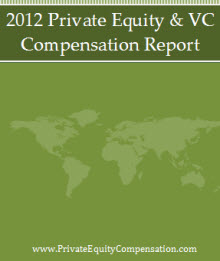In what is yet another sign that the IPO market has fizzled to a near-halt is the sudden increase in activity on the secondary market exchanges which facilitate the trading of shares in private, pre-IPO companies such as Facebook and Groupon. The secondary market has long been an avenue for investors to buy and sell shares of private companies and is a source of liquidity for employees and founders who want to cash out without having to wait for an IPO or private sale of the company. Transactions on secondary market exchanges have increased by 75% over the prior year which seems to correlate with the decline in exit activity this year in the wake of a sluggish IPO market.
Secondary market exchanges, also called private stock exchanges, emerged in the aftermath of the tech implosion in 2000 when the IPO market dried up leaving start-ups thirsty for financing without a direct source. More recently, they have garnered more attention from investors hoping to tap into the burgeoning social networking industry. Companies seeing the most trading activities are the big IPO hopefuls such as Facebook, Zynga, and Twitter.
Share pricing on private exchanges is more of an art than a science as it is based in part on implied valuations and, in part, on market forces, which leaves investors vulnerable if IPO valuations fall short of market expectations. For example, Groupon shares traded in June at an implied valuation of $20 billion which was what the underwriters had indicated as its then market value. In August, the shares traded at an implied valuation of $16 billion. Groupon is expected to go public this week, and the indicative trading range for the new stock pegs the valuation at around $11 billion, which will mean many investors, and some very big institutional investors, will take a sizable loss.
On the other hand, secondary market investors made out well with LinkedIn which came to market in a much better environment. For investors making huge bets on companies like Facebook and Twitter, their hopes rest largely on the mood of the market at the time of the IPO, more so than the fundamentals of the company which are not very transparent while the companies remain private.
Two of the larger secondary market exchanges are operated by SharesPost and SecondMarket. As evidence of how well these exchanges are doing at this time, SecondMarket recently posted its best quarterly results yet with $167 million of stock transactions for a year-to-date total of $435 million. Interestingly, SecondMarket, which has raised over $34 million after three rounds of financing, recently sold some of its own shares on the exchange for an implied valuation of $160 million. SecondMarket also makes a market for structured products, restricted stock and auction-rate securities.
While some feel the market for private exchanges is somewhat limited, SecondMarket and SharesPost are proving to be a valuable source of liquidity for companies caught in the slowdown of late round financing and exit activity.

